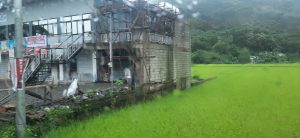Agro-ecotourism as growing field for semifeudalism

By PIO VERZOLA JR.
1 March 2023
Author’s note: This paper is a very preliminary attempt to find and validate the strongest linkages between two critiques: the critique of nature-based tourism, and the critique of semifeudalism. In this sense, it has the character of a draft paper, with obvious gaps here and there, that awaits a future, better-documented, more rigorously argued, and more carefully edited version. Nonetheless, I hope it is convincing enough to trigger discussions and analyze the many implications for the people’s movements in Third World countries, especially for the peasant and indigenous peoples’ movements.
INTRODUCTION
In many countries, agro-tourism and ecotourism are fast-growing. The two are similar in many respects, and may be combined into just one phenomenon, which in this paper I have labelled as agroecotourism (AE tourism or AET).
In Caribbean island-states and rural highlands, agro-ecotourism emerged early on to become a prominent feature of their economies, which remain mostly non-industrial while the service sector has long overtaken agriculture. In any case, AET is expanding in many Third World countries, including the Philippines.
Further research should indicate where each Third World country is located in this fairly new subsector. AET and its impacts can be better understood, measured and analyzed (with the help of the analytical tools of political economy), in terms of distinct trends of land use, employment, capital flows, share of GDP, linkages with other subsectors, and the role of the state.
This paper attempts to closely link, if not solidly connect, the phenomenon of agro-ecotourism with a specific mode of production (MOP) called semifeudalism, which remains prevalent in Third World countries. The assertion is that, in these countries, the growth of AE tourism allows the exploitative tentacles of semifeudalism to extend and tighten their hold in many economic areas, even those outside of agriculture.
The whole article can be downloaded here, in PDF format:



